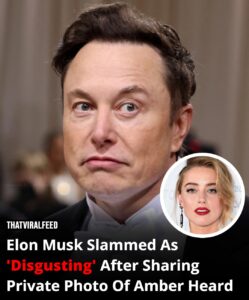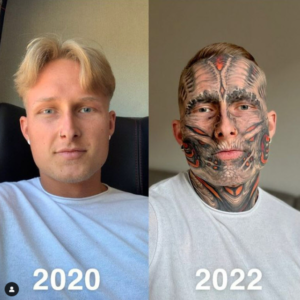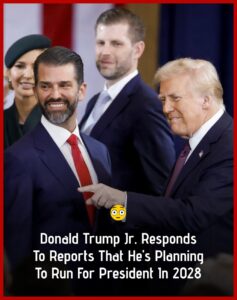In a surprising and controversial move, Tesla has been removed from the Vancouver International Auto Show, with organizers citing concerns over the “safety of attendees.” The decision has sparked debates within the automotive industry, with some questioning the rationale behind Tesla’s exclusion and others supporting the auto show’s commitment to public safety.
The Decision to Remove Tesla
The Vancouver International Auto Show, one of the most prominent automotive exhibitions in Canada, has long been a platform for showcasing cutting-edge innovations and industry advancements. Tesla, a pioneer in electric vehicle technology, was expected to have a significant presence at the event. However, the event organizers announced that Tesla would not be allowed to participate, citing safety concerns.
A statement from the show’s organizing committee indicated that their primary concern was the safety of attendees. “While we appreciate the role Tesla has played in advancing electric vehicle adoption, recent incidents and our assessment of safety protocols have led us to make the difficult decision to exclude Tesla from this year’s event. The safety of our attendees, exhibitors, and staff is our top priority.”
Possible Reasons Behind the Ban
While the organizers did not provide specific details, there are several potential reasons why Tesla may have been removed from the event:
1. Autopilot and Safety Concerns
Tesla’s Autopilot and Full Self-Driving (FSD) capabilities have been under scrutiny, with multiple reports of accidents and near-misses involving the technology. Regulatory bodies, including Transport Canada and the U.S. National Highway Traffic Safety Administration (NHTSA), have investigated Tesla’s driver-assistance systems following several high-profile crashes. Some speculate that concerns over the demonstration of these features at the event could have influenced the decision to remove Tesla.
2. Fire Risks with Battery Technology
Another possible reason could be concerns over the safety of Tesla’s lithium-ion battery technology. While electric vehicles are generally safe, there have been instances of Tesla cars catching fire, particularly after high-speed collisions or charging malfunctions. Auto shows require stringent safety protocols for exhibiting vehicles, and organizers may have been wary of potential risks associated with large crowds.
3. Past Incidents at Auto Shows
Tesla has had a history of controversy at auto shows. In 2021, a Tesla owner staged a protest at the Shanghai Auto Show, drawing attention to alleged safety defects in Tesla vehicles. Such incidents can create security risks for event organizers, who may have wanted to avoid any disruptions or negative press coverage during the Vancouver event.
Tesla’s Response
Tesla has not issued an official statement regarding its removal from the Vancouver International Auto Show. However, sources within the company suggest that executives were caught off guard by the decision. Some Tesla supporters have taken to social media to express frustration, accusing the event organizers of being influenced by traditional automakers who see Tesla as a threat to their market share.
Elon Musk, Tesla’s CEO, is known for his vocal presence on social media and has previously responded aggressively to perceived slights against the company. While he has not commented on this specific issue, many expect a response from him soon.
Industry Reactions and Public Opinion
The exclusion of Tesla from the Vancouver International Auto Show has sparked mixed reactions from industry insiders and the general public. Some experts argue that Tesla’s presence would have been an asset to the event, given its role in pushing the boundaries of electric vehicle technology. Others, however, support the decision, believing that safety should be the top priority at public gatherings of this scale.
Supporters of Tesla’s Exclusion
Those who agree with Tesla’s removal cite the company’s history of regulatory run-ins and safety concerns as legitimate reasons for exclusion. Critics have pointed to Tesla’s tendency to launch experimental software updates, such as FSD Beta, which allows users to test self-driving features on public roads. This approach, while innovative, has raised alarms among safety advocates and government regulators.
Opponents of the Ban
On the other hand, Tesla enthusiasts and some industry professionals argue that removing Tesla from the event sets a dangerous precedent. They believe that the decision was influenced more by politics and competition rather than genuine safety concerns. Some also argue that other automakers exhibiting at the show have faced recalls and safety issues, yet they have not been excluded.
Implications for the Auto Show and Tesla
The decision to exclude Tesla from the Vancouver International Auto Show may have broader implications for both the event and the automaker.
Impact on the Auto Show
For the event itself, Tesla’s absence could be a loss in terms of attracting visitors who are eager to see the latest in electric vehicle technology. Tesla remains one of the most influential brands in the EV space, and its presence often generates significant media coverage and public interest. By removing Tesla, the auto show risks alienating a segment of attendees who are passionate about electric mobility.
Impact on Tesla
For Tesla, the exclusion may not have significant financial consequences, but it does raise concerns about its reputation in Canada. If other events follow suit, Tesla may find itself increasingly isolated from mainstream automotive exhibitions. However, given Tesla’s direct-to-consumer sales model and its ability to generate hype without relying on traditional marketing, the long-term impact may be minimal.
What Happens Next?
It remains to be seen whether Tesla will take any action in response to its exclusion. If the company believes it was unfairly targeted, it may pursue legal action or launch a public relations campaign to counteract any negative press.
Additionally, the organizers of the Vancouver International Auto Show may face pressure to clarify their stance. If public sentiment turns against them, they may be forced to revisit their decision or provide further explanations for their reasoning.
Conclusion
The removal of Tesla from the Vancouver International Auto Show has ignited a debate over safety, fairness, and the role of traditional auto industry dynamics in shaping public events. While safety should always be a top priority, the decision raises questions about whether Tesla is being held to a different standard compared to other automakers. As electric vehicles continue to reshape the automotive landscape, this incident serves as a reminder of the growing tensions between legacy car manufacturers and disruptive new players like Tesla.







